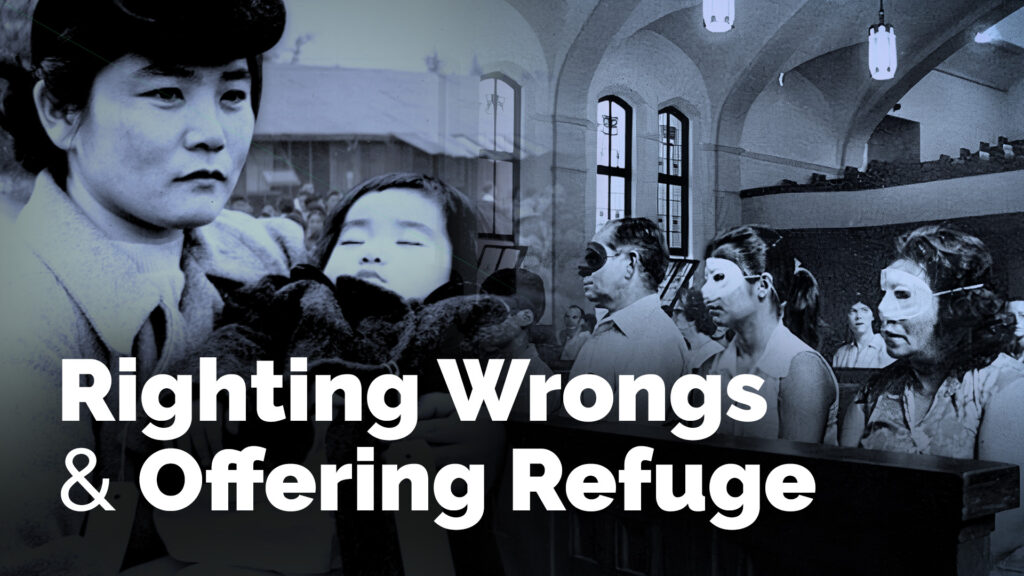
How do we repair the damage of past injustices? And can sacred spaces still serve as places of protection and resistance today? Two thought-provoking talks from UCSB’s Walter H. Capps Center tackle these urgent questions, exploring the responsibilities societies hold toward communities that have endured harm and the creative ways faith traditions shape public life.
In Righting Wrong When “Sorry” Isn’t Enough: Constructing an Asian American Theology of Reparations, Grace Kao, Professor of Ethics and the inaugural Sano Chair in Pacific and Asian American Theology at Claremont School of Theology, considers what justice looks like when words alone fall short. Drawing from international human rights standards, her Presbyterian faith, and real-world case studies of harm against Asian American and Pacific Islander communities, Kao examines how governments might make amends and whether descendants of those wronged can rightly demand reparations today.
The idea of protection takes a different form in Making a Refuge of Resistance: A History of the U.S. Sanctuary Movement. Lloyd Barba, Assistant Professor of Religion and Core Faculty in Latinx and Latin American Studies at Amherst College, revisits the 1980s, when churches across the United States opened their doors to undocumented immigrants facing deportation. These houses of worship became places of safety, where immigration authorities hesitated to act, and where communities of faith boldly redefined what it meant to offer sanctuary. Barba also asks what this history means for current debates around immigration and refuge.
Together, these programs highlight the power of ethics and religion to shape public life in concrete ways. From the call to repair historic injustices to the creation of protective spaces for vulnerable people, they remind us that moral responsibility is not just an abstract idea—it’s a living practice with real consequences.
Browse more programs from the Ethics, Religion and Public Life: Walter H. Capps Center Series.